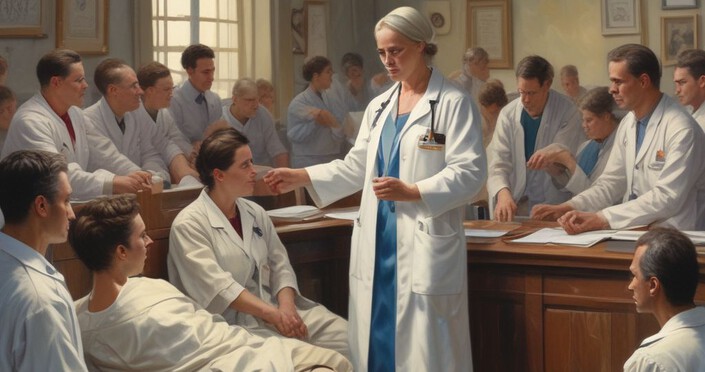Clinical Judgment in Nursing

What is Clinical Judgment in Nursing?
Clinical judgment in nursing can be described as those ways which can be utilized by nurses in developing the required understanding of the issues, problems or the general concern raised by their patients in attending the salient data and also to respond in involved and concerned ways (Tanner, 2006). Clinical judgment in nursing can thus be viewed as an important skill that is required by every nurse as it is effective in distinguishing a technical and a professional role that is played by the nurses. Writers who offer medical case study help at Edudorm essay writing service notes that while nurses provide care for their patients who are faced with multifaceted problems a variety of complex and conflicting factors must be considered in addition to the patients best interests in order to select the suitable action course. The selections or the intended judgments must, therefore, e made particularly to the current and the particular patient (Tanner, 2006).
Using Clinical Judgment in Nursing
Clinical judgment in nursing is the way of learning to think and reflect on the patient issue like a professional nurse. Clinical judgment lies mainly on the situation of the nurse as well as the provided situation that surrounds the patient. Experts who offer Medicare assignment help at Edudorm essay writing service indicates that the responses of the nurses are thus crucial in illustrating the particular clinical judgment and reflection held. Clinical judgment helps in solving the clinical situation. This is in that it helps the nurses in developing essential thinking skills that help in making the right choices towards a given situation (Tanner, 2006). Clinical judgment in nursing is additionally essential in developing thinking in actions traits which helps in changing situations and eradicating uncertainty which is associated with action selection choices.
Phases of Clinical Judgment in Nursing
The Clinical judgment in nursing model is presented in four phases which include noticing the situation, interpreting the situation, providing responses as well as reflecting (Lucille, 2013). Authors who offer pharmacology course help at Edudorm essay writing service points that these four major clinical judgments components are essential in explaining the complex patient’s situation which is associated with uncertainty as while as a status change in regard to a suitable action course to be utilized. The general concept can thus be summarized as skills that are associated with thinking while acting which can be illustrated in three steps. That is noticing the situation interpreting and responding to the situation using appropriate measures (Lucille, 2013). In noticing the medical profession is required to be cognizant of the needs of the patients through evidence or any available data, prioritizes the needs and then utilizes the data that surrounds the patient’s situation and develop the suitable conclusion in regard to suitable action course and respond to that event (Tanner, 2006). The events outcomes, therefore, provide the nurse’s reflection basis afterward on the effectiveness of the clinical learning and responses for practices in future (Tanner, 2006).
Tanner’s Model
Based on Tanner’s model the perception of the nurse of a situation is mainly driven by the situation context and it is shaped by the practical experience of the nurse (Tanner, 2006). This, therefore, implies that the perception is grounded on the nurse’s theoretical knowledge, relationship with the patient as well as their ethical perspectives. Tutors who offer homework help at Edudorm essay writing service acknowledges that additionally, the model assets that clinical judgment in nursing is illustrated via a range of reasoning procedures which includes analytic, intuitive that is based on practical knowledge and which most of the students lacks, as well as a narrative which happens when nurses narrate their stories. Nurses are thus required to reflect before selecting any action measure in order to solve the situation as professionals (Yoder-Wise, 2013).
Applying Clinical Judgment in Nursing
For instance, a patient was discharged from hospital after sarcoma treatment and a few days after she developed gas issues. After calling the nurse and explaining the issue the nurse recommended a set of drugs to solve the issue. Mentors who do my homework at Edudorm essay writing service recognizes that the nurse, therefore, failed to reflect on the given situation which later developed complications to the patient. The nurse was therefore necessitated to utilize clinical judgment in nursing to analyze the situation, question it, and reflect on it before developing any conclusion on any action on the patient.
References
Joel, Lucille A. 2013. Advanced practice nursing: essentials for role development.
Tanner, C. (2006). Thinking like a nurse: A research-based model of clinical judgment in nursing. Journal of Nursing Education, 45(6) 204-211.
Yoder-Wise, P. S. (2013). Leading and Managing in Nursing – Revised Reprint. London: Elsevier Health Sciences.


